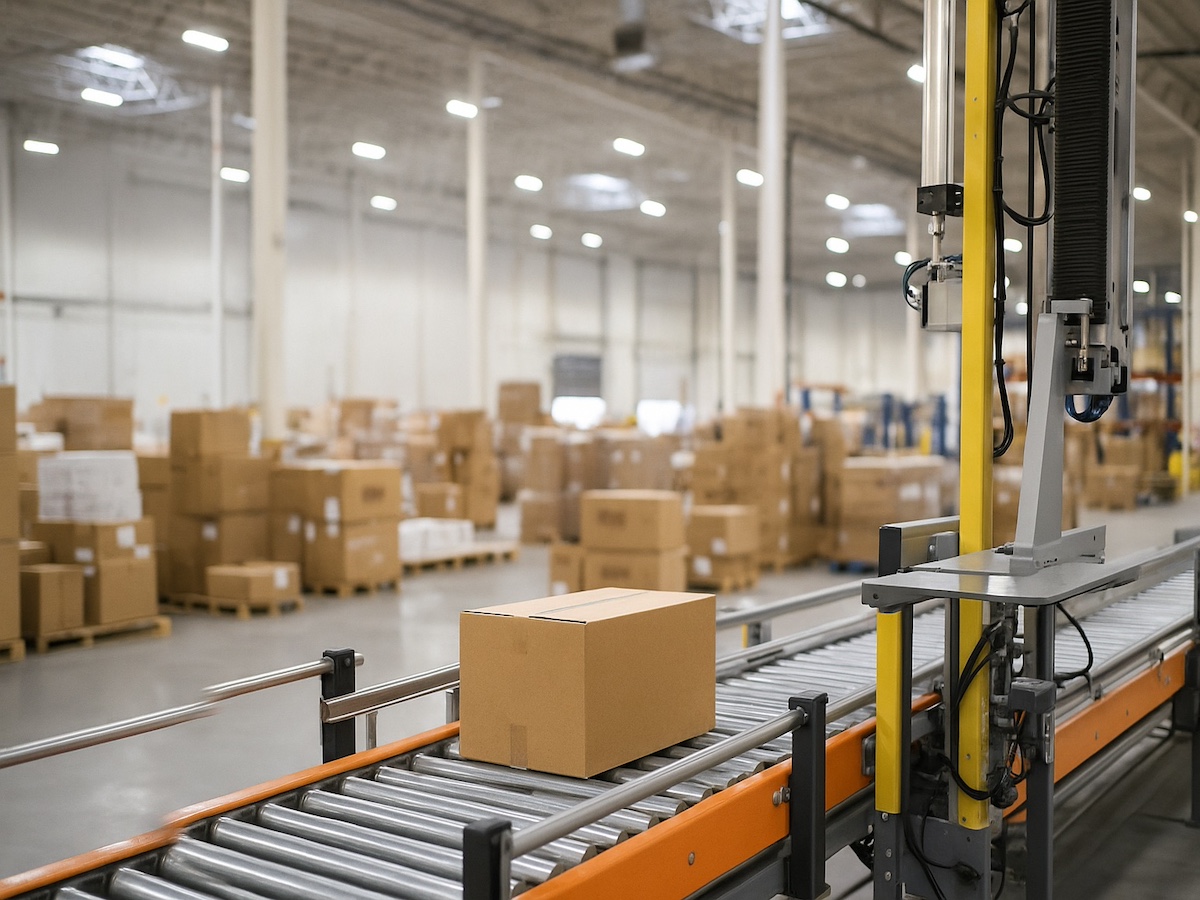In today’s fast-paced world of logistics and distribution, warehousing efficiency can make or break your supply chain. Whether you’re running a high-volume e-commerce business or managing multi-client fulfillment in a 3PL facility, having the right package handling system in place is critical.
As customer expectations for faster delivery and greater accuracy increase, traditional, one-size-fits-all systems often fall short. That’s where custom package handling systems step in — tailored solutions designed to streamline your operations, maximize space, and reduce labor costs.
In this article, we’ll explore what these systems are, how they differ from standard solutions, and why they’ve become essential for modern warehousing operations.
What Are Custom Package Handling Systems?
Custom package handling systems are engineered solutions specifically designed to move, sort, and manage packages through a warehouse or distribution center efficiently. These systems are built around the unique requirements of a facility, taking into account package sizes, throughput needs, available space, and workflow patterns.
Core Components of a Custom Handling System
- Conveyors (belt, roller, modular, spiral)
- Automated Sorters and Diverters
- Scanners and Label Readers
- Lifts, Elevators, and Turntables
- Robotic Arms and Palletizers
- Integrated Warehouse Management Systems (WMS)
Key Benefits of Custom Package Handling Systems
1. Improved Throughput and Productivity
By optimizing the flow of goods and minimizing touch points, custom systems increase the speed and efficiency of package movement. Automated sorters and scanners ensure that packages go exactly where they need to, reducing downtime and improving turnaround times.
2. Better Space Utilization
Custom systems are designed around the layout of your facility. They often incorporate space-saving elements like spiral conveyors, overhead systems, and mezzanine-supported equipment, allowing you to do more within the same square footage.
3. Reduced Labor Dependency
Labor shortages continue to impact warehouse operations. By automating repetitive and physically demanding tasks like lifting, sorting, or scanning, custom systems reduce the need for manual labor and improve worker safety.
4. Scalability and Flexibility
As your operations grow, your system should grow with you. Custom solutions are often modular in design, allowing for easy expansion or reconfiguration as your business evolves.
Industries That Benefit Most from Custom Systems
E-Commerce and Retail
High SKU counts, unpredictable order volumes, and next-day delivery expectations make customized handling essential.
Third-Party Logistics (3PL)
3PL providers must manage inventory for multiple clients, often under tight deadlines. Custom systems allow them to stay agile and accurate.
Food and Beverage
Custom systems handle specific packaging needs and hygiene requirements, such as wash-down conveyors and temperature-controlled sorting.
Pharmaceutical and Healthcare
Traceability, compliance, and product integrity are critical. Custom solutions support secure and precise handling throughout the supply chain.
Designing a Custom System: Key Considerations
Creating a tailored package handling system involves more than just selecting equipment. It’s about designing a solution that aligns with your operational goals and constraints.
1. Package Types and Volumes
The size, weight, and shape of your packages will determine the type of conveyors and sorting systems you need.
2. Facility Layout
Every warehouse has its own structural limitations—ceiling height, dock placement, column spacing. Custom systems make the most of the available space.
3. Integration with Existing Systems
Your new system should communicate seamlessly with your current WMS, ERP, or SCADA platforms. Integration ensures real-time data flow and better decision-making.
4. Future-Proofing
Growth is inevitable for a successful operation. A custom system should include provisions for modular upgrades, new automation tech, or layout changes down the road.
Common Challenges Solved by Custom Systems
| Challenge | Custom Solution |
|---|---|
| Inefficient material flow | Layout-optimized conveyors and routing logic |
| Labor shortages | Robotic automation and ergonomic designs |
| Frequent product changes | Flexible systems with adjustable guides and software rules |
| Low accuracy in sorting | AI-based scanners and automated divert systems |
| Growing operations | Modular expansion with pre-designed add-on units |
FAQs
What is a package handling system?
It’s a system that moves, sorts, and tracks packages throughout a facility using equipment like conveyors, sorters, and software integration.
How do custom systems improve warehouse efficiency?
They optimize layout, reduce human error, increase throughput, and ensure seamless integration with your existing technology.
What is the difference between a custom and standard handling system?
Custom systems are tailored to specific operational needs, while standard systems are pre-configured and less flexible.
Are custom handling systems cost-effective for small businesses?
Yes, especially if the business is growing or requires specific handling due to product size, weight, or compliance.
Can these systems be modified later as operations grow?
Absolutely. Custom systems are typically designed with modular components that make scaling easier.
Conclusion: How Miller Fabricated Systems Can Help
At Miller Fabricated Systems, we understand that no two warehouses operate the same way. That’s why we don’t believe in cookie-cutter solutions. Our team collaborates closely with clients to engineer custom package handling systems that improve efficiency, reduce costs, and prepare your operation for the future.
With decades of experience in designing conveyor systems, platforms, and structural steel solutions for high-demand industries like automotive, food & beverage, and healthcare, we bring both expertise and execution to every project. Whether you need a complete end-to-end solution or a tailored upgrade to an existing system, we’re here to deliver scalable, reliable, and performance-driven results.
Contact us today to learn how we can build a system that works as hard as you do.

